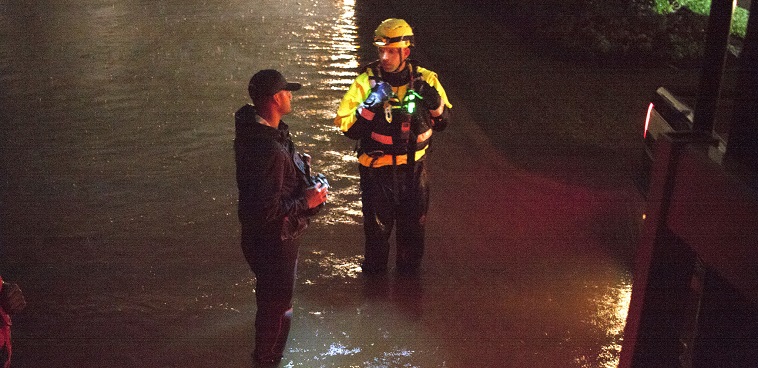The Texas Gulf Coast is a region where regulators and chemical companies are familiar with each other, both because of the sheer number of facilities in the region and because of the important roles each has when it comes to disaster preparation, response and recovery.
A recent event held at Houston Area Safety Council headquarters and organized by the American Chemistry Council and Texas Chemical Council touched on the governmental and company responses to Hurricane Harvey, as well as lessons learned.
The daylong event included a morning panel featuring site managers, environmental, health and safety (EHS) officials and other executives from five chemical companies. The afternoon saw panels with federal, state and county officials, including a Coast Guard leader and the Port of Houston commissioner.
Any emergency preparedness or response along the Texas Gulf Coast must take into account land and sea, as well as the various needs of first responders, industrial facilities, residents and anyone working to support those efforts. Company executives in the morning panel discussed the unique nature of Harvey — its heavy rain and flooding, that it affected many sites simultaneously — while noting that employees, including contractors, were often personally affected by the storm, too.
While any storm can bring surprises, Nancy Randolph of Dow Chemical noted that planning for hurricanes is a year-round job, while Mike Zamora, ExxonMobil’s Americas director of manufacturing, pointed out that drills regularly occur at a regional and local level, not just when a storm is imminent.
Part of a chemical company’s response involves coordinating with government officials from the local level all the way up. As LyondellBasell site manager Kim Foley noted, planning out scenarios and executing them relies on interaction with local officials, whether they be ports, sheriff’s office, Coast Guard or others.
Much like scenario planning for facilities, good working relationships between companies and local officials don’t start during storms, but much sooner. Recent hurricanes have taught Chad Anderson of Huntsman that “you need to make your plans very, very early when it comes to building relationships and being a key stakeholder at the site. It’s also very good, from what we’ve seen, to test those relationships long before you actually need to use the relationships.”
Peter Greco of LyondellBasell pointed out that, from a technical standpoint, communications and information systems must be robust enough to handle any incident. This was made clear last year, he said, as “Harvey overwhelmed everything.”
A geographically specific challenge for the Texas Gulf Coast region is the sheer number of jurisdictional entities and an uncertainty about who companies need to report to beyond the immediate local jurisdiction, said David Wade of the Harris County Office of Emergency Management. Coordinators like Wade can help companies improve those efforts — not just during an emergency situation but as an ongoing preparation and planning exercise. Because of the complexities of crisis communications, Wade said, he encourages all facilities, even smaller ones, to utilize local information-sharing systems so that everyone is in the loop.
The afternoon sessions also looked at Harvey from the port’s response, as well as legislators grappling with recovery efforts and planning for future efforts. This included Coast Guard Captain Kevin Oditt describing the challenging situation floodwaters presented to the Houston Ship Channel during Harvey from his perspective.
For the port and the Houston Ship Channel, there’s work to be done still to repair damage and and restore it to pre-storm state, much less prepare for future storms. Texas state Sen. Brandon Creighton called Harvey “the new benchmark” for these types of conversations. Meanwhile, fellow Sen. Larry Taylor called for a coastal barrier, or “spine,” to help protect the region, noting that had Harvey brought a storm surge directly up the channel, the Port of Houston could have been closed for months.
All that work will require commitment and resources, including federal funding, a point raised by both senators as well as discussed by Sen. Ted Cruz, R-Texas. Creighton also emphasized the need to ensure that federal funding formulas properly compensate Texas to help the state prepare for future storms.
